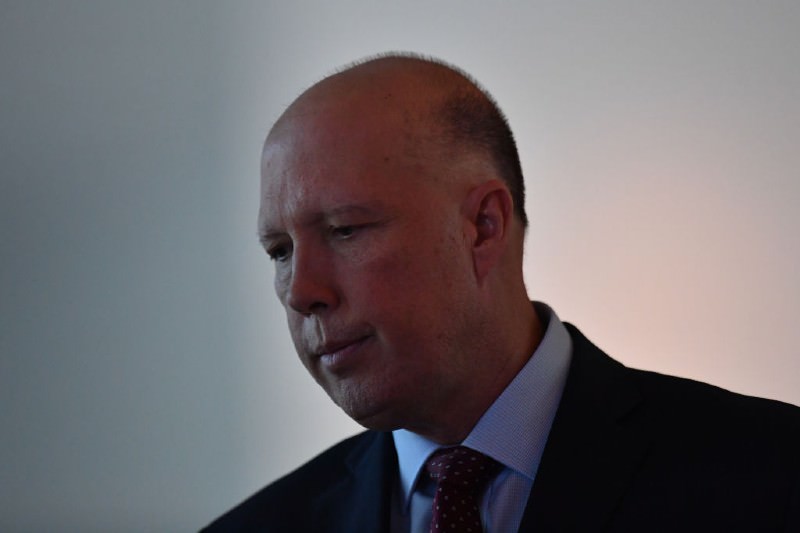Extract from Eureka Street
- Justin Glyn
- 18 May 2020

It is no wonder. Among the many treasures in this innocently titled bill are oral arrest warrants – including for children (s.34B). Questioning warrants that allow anyone over the age of 14 to be detained and questioned can be issued orally, ignoring the need for nasty paper trails which could later prove inconvenient in court (although the Director General has two days to write up a summary).
The subject of a warrant may be arrested, searched or detained by ‘such force as is necessary and reasonable under section 34CD.
There’s also the duration of the warrant (s.34DL). While the warrant nominally runs for 28 days (with a maximum of 40 hours of continuous questioning in a session), the limit is more notional than real. There is no limit on how many warrants can be issued and the warrant is not regarded as running for any time which the subject is given to 'rest and recuperate' or complain about conditions, or consult with a lawyer or even to request a lawyer (amongst other exclusions).
As if this were not enough, the Attorney-General’s appointed questioner may also exclude 'any other time' from the running of the warrant. Accordingly, the eventual period of unsupervised detention could potentially run indefinitely.
'It goes without saying that this represents a substantial incursion on individual liberties. Once more, Australia’s lack of basic human rights protections is made obvious.'
Warrants are not approved by a judge and so there are limited, if any, effective means to challenge them.
Entry, search and seizure (s.34CA, 34CC and 34CD) would mean once a questioning warrant is in force, police need no further powers to enter premises, search the subject of the warrant and the premises and seize anything they find which might be ‘relevant’ to the warrant.
There is no need to set out any particulars of what may be searched for – something which would, for example, make it a lot easier to shakedown pesky journalists for poking their noses into alleged war crimes committed by Australians abroad and to secure any embarrassing information they may have found.
Of particular concern is limitation on access to counsel. Someone chosen for questioning has no right to communicate with anyone except a lawyer (or a minor’s representative, if under 18) before questioning – s. 34CB. The Attorney-General’s delegate may also deny access to those lawyers of which he or she disapproves and remove a lawyer at any stage during the questioning process – part 34D. In addition, if the warrant is to be executed immediately, the delegate may choose the lawyer to be assigned to the subject – s.34FC. All of this, too, can be done orally. Those questioned may therefore be denied the right to effective, or any indeed any, legal representation.
In part 34G failure to appear for questioning under a warrant carries a five year prison term and failure to surrender travel documents carries a two year term. This is likely to lead to Kafkaesque results — since disclosing that someone is the subject of a warrant in the first place also carries a five year prison term. Even disclosure of the fact of a warrant within two years after expiry carries a two year term.
In summary, then, we have indefinite detention without trial for questioning on the basis of a warrant which cannot be disclosed but which allows forcible arrest, search and seizure and can be issued orally and used against children as young as fourteen. Lawyers are optional at the questioner’s discretion.
There are other, lesser, delights here which others have mentioned, for example the unrestricted rights of ASIO to attach tracking devices or use other methods of surveillance without legal restriction.
It goes without saying that this represents a substantial incursion on individual liberties. Once more, Australia’s lack of basic human rights protections is made obvious.
Admittedly, this is only the first draft, and much could change before the bill becomes law. That said, given the Opposition’s supine response to past tranches of such legislation, there is absolutely no reason to assume that they will leap to the citizenry’s defence.
To give an idea of just how far the idea of democratic control of the executive has fallen, here is a poignant comparison for the week after the celebration of the 75th anniversary of Victory in Europe.
ASIO Powers Amendment Bill 2020 (Cth): 34GF Secrecy relating to warrants and questioning
Before warrant ceases to be in force
(1) A person (the discloser) commits an offence if:
(a) a questioning warrant is issued; and
(b) the discloser discloses information; and
(c) either or both of the following apply:
(i) the information indicates the fact that the warrant has been issued, or a fact relating to the content of the warrant or to the questioning or apprehension of a person in connection with the warrant;
(ii) the information is operational information; and
(e) the disclosure occurs before the end of the period specified in the warrant as the period for which the warrant is to be in force; and
(f) the disclosure is not a permitted disclosure.
Nacht und Nebel (Night and Fog) Decree: General Keitel, 7 December 1941
III…… In case German or foreign authorities inquire about such prisoners, they are to be told that they have been arrested but that the proceedings do not allow any further information.
Under s. 34GF (1)(c)(i), even the disclosure of the arrest
mandated by this, one of Keitel’s most infamous decrees, would be an
offence carrying a five-year prison term.
 Fr
Justin Glyn SJ has a licentiate in canon law from St Paul University in
Ottawa. Before entering the Society he practised law in South Africa
and New Zealand and has a PhD in administrative and international law.
Fr
Justin Glyn SJ has a licentiate in canon law from St Paul University in
Ottawa. Before entering the Society he practised law in South Africa
and New Zealand and has a PhD in administrative and international law.
No comments:
Post a Comment